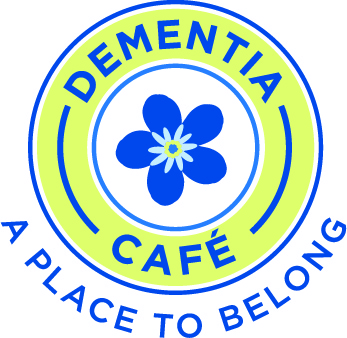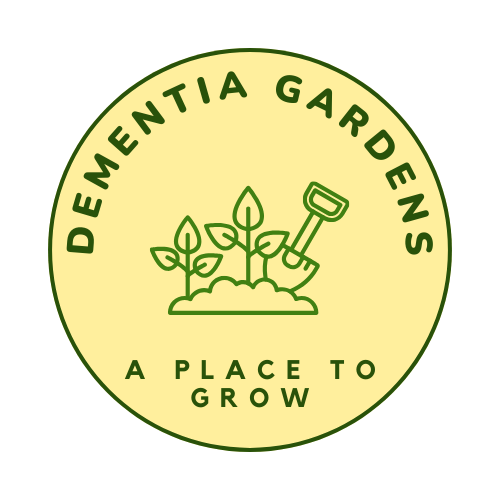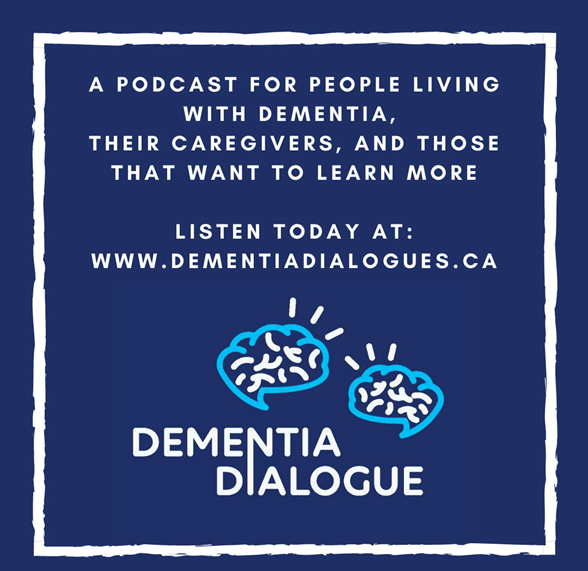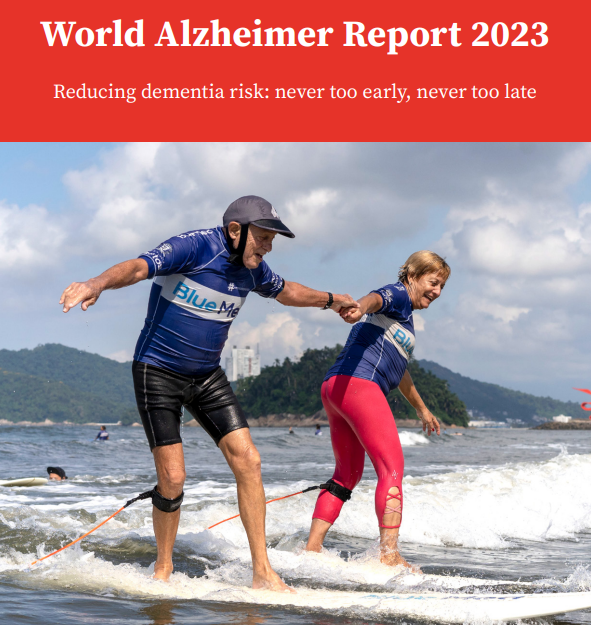Dementia and Seniors’ Mental Health
Family, Friends, and Care Partners
Support and Activities
Dementia Café: A Place to Belong

The goal of Dementia Café: A Place to Belong is to create and maintain a safe and inclusive social environment with opportunities for social connection and interaction for people with dementia, regardless of age or stage, and their care partners. All people living with dementia and care partners welcome! Typically, Dementia Café is held 3 Sundays per month at Urban Abbey, Thunder Bay, ON. Free coffee, tea, and treats provided. If you are interested in registering, contact dementia.cafe@lakeheadu.ca or visit our Facebook page for further details.
Dementia Gardens: A Place to Grow (Coming Soon!)

Dementia Gardens: A Place to Grow is a visionary project that aims to provide a sanctuary on the campus of Lakehead University, where individuals living with dementia and their families can find solace amidst native plant gardens. We want to provide a dignified outdoor day program for those living with dementia, along with family and community programs, all while fostering connections within our community. This is an initiative of CEARH & The North West Dementia Working Group (NWDWG). For more information, please click HERE.
Adult Day Programs
Adult Day Programs provide part-day supervised activities in a group setting for dependent adults, such as the frail elderly, people with dementia, or persons with disabilities. These programs provide much-needed social interaction for the individual and also provide some respite for the caregiver. Adult Day Programs may include activities such as leisure, meals, exercise, games, music, cultural activities and more. Click HERE to see the full listing of available Adult Day Programs in Thunder Bay.
Age Friendly Thunder Bay
Age Friendly Thunder Bay is a community based stakeholder group advocating for seniors' independence and quality of life in Thunder Bay. Age Friendly Thunder Bay help citizens age with dignity in a community recognized by the World Health Organization Global Network of Age Friendly Cities. To learn more about the work they are doing for our community visit www.agefriendlythunderbay.ca.

Alzheimer Society of Thunder Bay
The Alzheimer Society of Thunder Bay provides quality programs and services to individuals living with dementia, their families and their care partners such as:
- First Link: a direct referral program created in partnership with health service providers to ensure individuals and families get the support they need to make informed choices, to better manage living with dementia at every stage of the disease. First Link® connects you to health services, information and community resources. We also offer our First Link Learning Series, designed to help you understand and respond to each phase of the disease with practical tips and strategies
- Minds in Motion: an eight week program intended for individuals with early to mid-stage signs of dementia and their care partners. The program combines one hour of physical activity and one hour of mental stimulation, unfolding to laughter and chatter, with new friendships forming and stories being shared. This program is held seasonally, once a week, at the Oliver Road Recreation Centre. *Due to Covid-19 protocols, this program is currently being held online via Zoom, one hour per week*.
- The Music Project: The Music Project aims to provide a person living with dementia with a musical intervention that is designed to stimulate memory, encourage engagement and support self-expression and sense of identity. Through the music Project, personalized playlists are provided on iPods to support a person living with dementia and improve their quality of life at no cost to eligible families.
- Individual and Family Counselling: They offer counselling for individuals and families in person, over the phone, or though the Ontario Telemedicine Network (OTN)- day or evening sessions available.
- Support Groups: They offer ongoing, specialized discussion and support groups for people with dementia and their partners in care. This is a space for care partners or individuals living with dementia can join together to share and receive support. These groups meet once a month. Current groups include: Diner’s Club, Coffee Club, Daughter’s Group, and the Lunch Club. Support groups are for registered clients only.
- Resource Centre: The Alzheimer Society of Thunder Bay provides resources for individuals living with dementia, care partners and the general public through our library of books, dvd's and informational booklets. We also have information regarding other local services and organizations that would be of benefit to those affected by dementia.
For more information on programs and services at the Alzheimer Society Thunder Bay, please call: (807) 345-9556
Cyber-Seniors

Do you need help using your smartphone, tablet or computer? Cyber Seniors' trained Tech Mentors are you people who teach technology to older adults.
Cyber-Seniors provides FREE technology support and training for senior citizens. You'll find a range of resources on the website, such as:
- how to make a video call,
- how to order things online,
- how to set up video appointments
- device training
- "how-to" webinars and digital travel documentaries
- dementia awareness and more!
Call 1-844-217-3057 to register for free webinars or to schedule one-on-one help over the phone. Visit their website for more details.
Dementia Alliance International: Peer-to-Peer Support Groups
Dementia Alliance International members facilitate and provide online peer-to-peer support groups and social groups for people with dementia through Facebook and Zoom (online video conferencing). You can join here for free. For those who prefer one-on-one support, DAI also provides peer-to-peer mentoring.
1-833-416-2273 (CARE). Phone and Live Chat
The Ontario Caregiver Helpline by the Ontario Caregiver Organization provides caregivers with a one-stop resource for information and support, such as information on respite care, support groups, and navigating the health and social service systems. This is not a crisis or counselling line. The Helpline is available by phone 24/7 or through the online Live Chat: Monday through Friday, 7am – 9pm EST.
Education
CERAH E-blast Newsletter
The CERAH monthly E-blast newsletter contains a wide array of resources, news, updates and educational opportunities for both professionals and home caregivers. Our "Caring Connections" series specifically addresses older-adult mental health & dementia care. Check out this months' newsletter and subscribe HERE.
The Ontario Caregiver Association
The "I am a Caregiver" Toolkit from the Ontario Caregiver Association includes important information for the new or seasoned caregiver. This information was created by caregivers, for caregivers. The toolkit has a strong focus on self-care and mitigating caregiver burnout. The Ontario Caregiver Organization website also includes a number of tip sheets on topics such as: communicating with health care providers, privacy and consent and many more.
Dementia Dialogue Podcast

Dementia Dialogue is a podcast that features people living with dementia, their care partners, loved ones, and supporters sharing their experiences. Through the interviews, guests demonstrate their capacity to live life fully. Additionally, Dementia Dialogue offers episodes with researchers and advocates.
Keep up to date with the newest episode on your favourite streaming platforms!
The World Alzheimer Report 2023

The World Alzheimer Report 2023 focuses on reducing the risk of dementia and offers a truly global insight into the ways in which dementia risk factors are experienced around the world.
Inside you will find the latest research, alongside fascinating case studies and beautiful imagery, demonstrating how dementia risk reduction expresses itself in concrete ways all over the world, with articles from South Africa, Kenya, Pakistan, Singapore, Japan, Uruguay, Colombia, and the United Kingdom.
Read about a community of centenarians living in Ogimi, Okinawa, a ‘blue zone’ village famous for its residents’ longevity, how pilchards, a small fish, could make a difference in South Africa’s dementia risk reduction effort; or why getting a hearing aid if you’re experiencing hearing loss could reduce your risk of cognitive decline.
The report also highlights global disparities in an individual’s ability and means to mitigate their risk of dementia, galvanising a call to action for governments to provide population-based systemic changes to promote risk reduction and the importance of dementia research.
Chapters included in the report:
- Physical health risks
- Brain health risks
- Environment and population
- Non-modifiable risks
- Preventative risk reduction
- Post Diagnosis Risk Reduction
Health and Social Care Providers
Support and Activities
Preventing Burnout and Compassion Fatigue While Working with Older Adults
A short document that defines burnout and compassion fatigue, and provides ways to identify and avoid it. Available HERE.
Mental Health and Substance Use Support
Wellness Together Canada offers free resources for mental health and substance use support. Wellness Together Canada is available in English and French online or via phone at 1-866-585-0445.
National Caregiving Survey
To better understand the current experiences of caregivers and care providers across Canada, the Canadian Centre for Caregiving Excellence worked with Leger Communications to develop and deliver a pan-Canadian survey.
The National Caregiving Survey summary of findings is the first data release from this survey.
Initial data highlights:
- 76% of care providers and 61% of caregivers say that policy related to caregiving is important to how they vote.
- 90% of caregivers need broader financial support
- 94% of caregivers need better access to home care services
- 64% of care providers say higher pay is needed for job satisfaction
- Only 25% of care providers feel supported by governments
CCCE will be releasing a full data report in spring 2024.
Exploring Two Pyschosocial Factors for Health-Care Workers
Psychological health and safety in the workplace is directly tied to our well-being. It is integral to our capacity to be effective, to feel significant, and to find meaning in our work. Those in health care face many challenges to being well at work, challenges that have increased exponentially during the COVID-19 pandemic. In this light, Canada’s health-care leaders and policy makers have an ethical responsibility to support health-care workers in their psychological self-care and protect them from moral distress.
Education
BrainXChange
Browse a multitude of resources compiled by the brainXchange related to dementia, neurological conditions related to aging, and brain-health.
Dementia Strategy for Canada: Together We Achieve - 2021 Annual Report
The Public Health Agency of Canada has released a Dementia Strategy for Canada: Together We Achieve - 2021 Annual Report. The 2021 Report to Parliament on Canada's national dementia strategy provides a Canada-wide overview of some of the many efforts underway that support the strategy's national objectives.
Senior Friendly Care E-Learning Series
Online self-directed introductory modules for clinicians on delirium, loneliness, mobilization, nutrition, pain, polypharmacy, and urinary incontinence.
Behavioural Supports Ontario Person-Centred Language Resources
Behavioural Supports Ontario (BSO) is rooted in person- and family-centred care. One such way to demonstrate this fundamental value is by incorporating a language, both written and spoke, that is specific, descriptive and resonates with the individuals we have the privilege to support.
There are e-courses, toolkits, pledges and a handy Word-Swap poster that can be accessed. This one-page poster invites readers to consider swapping out common words in favour of person-centred language in everyday conversations; available in French and English.
Canada Dementia Strategy
A Dementia Strategy for Canada: Together We Aspire is a report on Canada's first national dementia strategy. This document sets out a vision for the future and identifies common principles and national objectives to help guide actions by all levels of government, non-governmental organizations, communities, families and individuals.